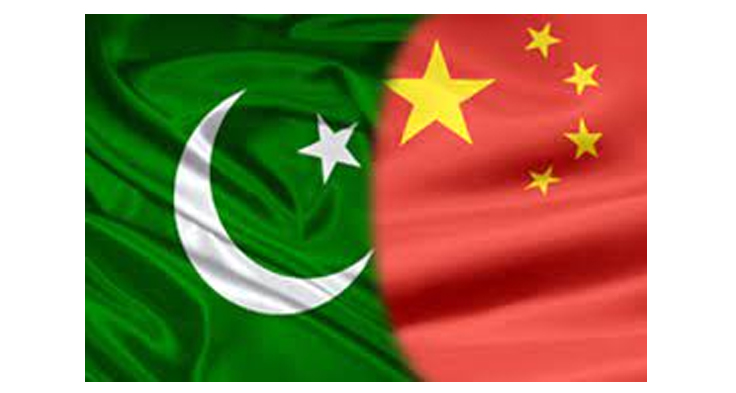BEIJING, Sept. 22 (DNA): Experts called for Pak-China cooperation on decarbonisation to achieve the target of global carbon emission.
According to China Economic Net, “Belt and Road (BRI) countries account for over 60% of global carbon emission.
Faced with the prominent common challenge of climate change, a BRI carbon market could be introduced to reduce the overall emission of BRI countries”, proposed Zhang Jianyu, Executive Director of the BRI Green Development Institute, in a recent conference on carbon peak and carbon neutrality.
The carbon market featuring emissions trading system (ETS) is booming internationally in recent years as the most important policy tool to promote green, low-carbon development. By 2019, over 46 countries had signed 58 carbon pricing initiatives.
“With greenhouse gas emission quota or emission reduction credit as the subject matter, ETS is conducive to controlling greenhouse gas emissions”, introduced Zhang. Different from the traditional market of goods, it is a policy-based market arising from artificial design to properly allocate the right to emission.
For BRI countries, as most members are undergoing industrialisation, their share of global CO2 emissions will continue to grow. In June this year, Pakistan, China, and other BRI countries launched the BRI Partnership for Green Development, which reaffirms climate change as one of the most prominent issues human beings are facing.
“Pakistan is not heavily industrialized, we have to be very careful in our planning and avoid polluting technologies and industries”, said Prof. Engr. Zamir Ahmed Awan, Deputy Director, Center for Chinese Studies, National University of Science and Technology, Pakistan, and Former Science and Technology Counsellor, Embassy of Pakistan in China in his exclusive interview with China Economic Net (CEN).
“Any country that develops its economy at the price of environment will ultimately pay for it”, he added.
Feasibility study of the carbon market by the BRI Green Development Institute shows that Southeast Asian countries including Pakistan shows varying degrees of readiness in establishing a national carbon market in terms of government support, administration of public sector, ease of doing business, enterprise information disclosure.
In 2019, Pakistan set up a national committee to assess the role and scope of a potential domestic carbon market and is seeking to offset China’s national emissions trading scheme.
Committed to peak its carbon emissions by 2030 and realize carbon neutrality by 2060, China launches its first emissions trading system in 2013 in Shenzhen. In the following year, seven pilot sites were appointed with respective emission quotas based on local conditions, laying a foundation for a nationwide emissions trading system which started in 2017.
In 2020, China’s emissions trading market completed a volume of 430.09 million tons of carbon dioxide equivalent, up 40.85% year on year. The transaction volume reached 1.267 billion yuan, up 33.49% year on year and setting a record high.
In the future, eight key industries, including power generation, such as petrochemicals, chemicals, building materials, steel, nonferrous metals, paper making, and aviation, are expected to be gradually included in the carbon trading system. China is also expected to further the innovation of carbon financial products, enhance the price discovery function of the carbon market, and carry out carbon funds, carbon asset pledge loans, carbon asset credit, carbon insurance, and other carbon financial services.
As the Chinese carbon market matures, different methods to connect with other BRI countries shall be explored.
According to experts, the regional ETS, once established, will give Pakistan an edge in export due to its relatively low carbon emission reduction cost.
As part of the BRI Partnership for Green Development, international cooperation on clean energy is stressed for affordable, economically sustainable energy provided to developing countries.
“The power sector should take the lead in the carbon market among the BRI countries”, Zhang Jianyu recommended. For this purpose, the report by his institute proposes to establish a carbon market fund and enhance international cooperation in setting up corresponding academic disciplines and carrying out talent training.
To underpin such a transition, “a new-type power system is a must to achieve the decarbonisation goal”, said Wang Xuesong, assistant president of electric Power Development Research Institute. “The essence of high-quality low-carbon electricity lies in security, cleanness, and efficiency. In this regard, new technologies and the market mechanism will support the system”, he added.
“While Pakistan is at the initial stage of decarbonisation, the cooperation with China to lower emissions has seen fruits”, acknowledged Prof. Engr. Zamir Ahmed Awan, who was impressed when he visited Sahiwal Power Plant. “The plant, which is a flagship energy project under CPEC, sets a model for Pak-China cooperation in clean energy”.
“A carbon market cannot be established overnight, nor will it function in the same mode. With carbon neutrality as the common goal, different pricing structures are encouraged and a balance should be reached between economic growth and green development”, Zhang Jianyu added.

















